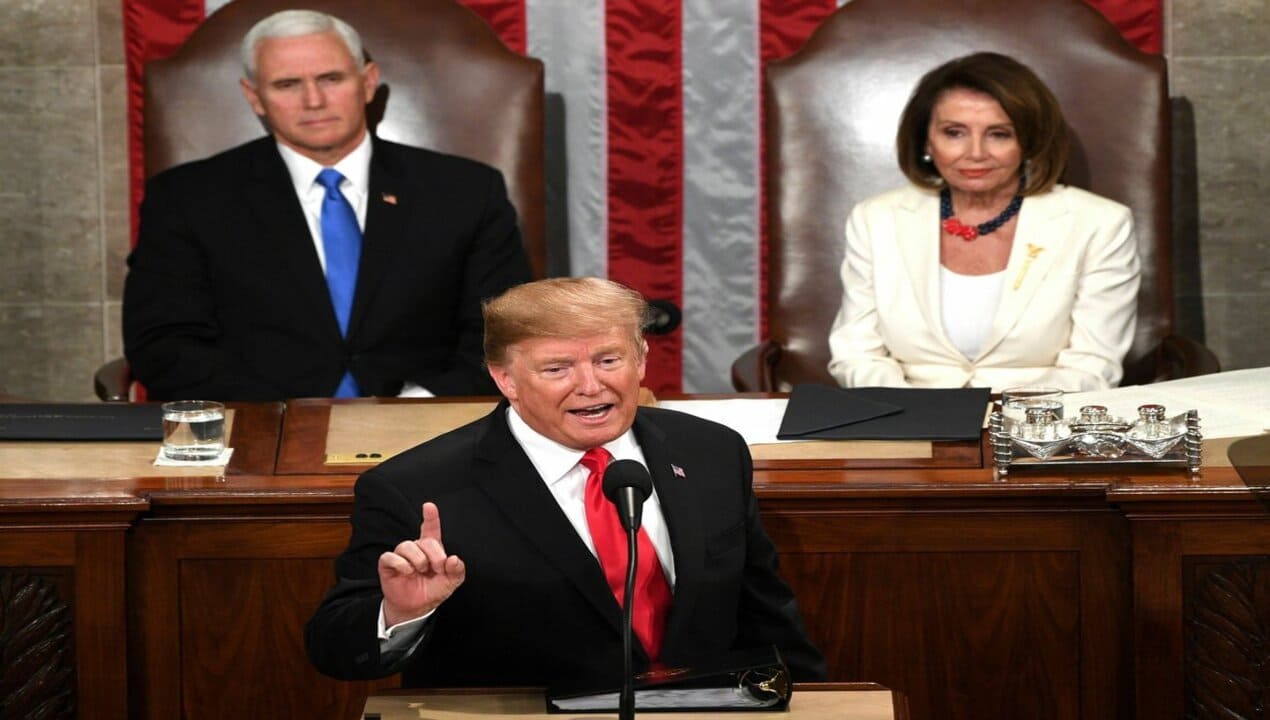
Independent Report – The U.S. Senate advanced a bill on Tuesday that includes President Donald Trump’s proposal to cut billions of dollars from foreign aid and public broadcasting budgets. This move is seen as a key test of Trump’s influence over the Republican Party. However, the bill excludes cuts to PEPFAR. A global program to combat HIV/AIDS that was launched in 2003 under President George W. Bush. Lawmakers from both parties opposed cutting funds for PEPFAR. Resulting in a reduction of the total proposed cuts from $9.4 billion to $9 billion.
Russell Vought, the director of the Office of Management and Budget, told reporters that the administration is willing to accept a Senate amendment that removes the PEPFAR cuts from the package. This amendment allows the bill to move forward without reducing funding for the vital HIV/AIDS program. Vought’s comments came after a lunch meeting with Republican senators. Indicating some level of flexibility from the White House on this issue.
On the same day, the Senate narrowly overcame opposition from Democrats to pass two initial procedural votes on the bill. Vice President JD Vance was called upon to break a 50-50 tie during these votes, showing the razor-thin margin for advancing the legislation. Additional votes on the bill were expected later in the week. As Congress faced a Friday deadline to pass the package.
The rescissions package originally aimed to cut $8.3 billion from foreign aid and $1.1 billion from public broadcasting. If Congress fails to pass the measure by Friday, the White House must follow the existing spending plans already approved by lawmakers. Despite the overall small size of these cuts in relation to the federal budget of $6.8 trillion, the proposal stirred strong reactions. Especially among Democrats and some Republicans concerned about Congress’s constitutional role in controlling government spending.
Among the Republicans, three senators voted against advancing the bill: Lisa Murkowski of Alaska, Mitch McConnell of Kentucky, and Susan Collins of Maine. Senator Murkowski criticized the proposal to drastically cut the Corporation for Public Broadcasting, arguing that such deep cuts were unnecessary. She also expressed concern that the administration had not guaranteed continued support for global health efforts against diseases like malaria and polio, as well as family planning and pandemic prevention programs. Murkowski emphasized the importance of Congress maintaining authority over budget decisions.
Also Read : Abortion Ban Upheld in West Virginia Despite FDA Approval
If the Senate passes the bill without the PEPFAR cuts, it must return to the House of Representatives for another vote before being sent to President Trump for signature. Senate Majority Leader John Thune, a Republican from South Dakota. Expressed confidence that the House would act quickly to approve the measure.
Although the amounts involved are minor compared to the overall federal budget. The proposed cuts have ignited debate over the balance of power between the executive and legislative branches. The Trump administration has already held back $425 billion in federal funds, pursuing widespread reductions across government programs, including thousands of job cuts.
The foreign aid reductions target programs that provide crucial support to women and children’s health worldwide, as well as efforts to fight HIV/AIDS. Which have long received bipartisan backing. PEPFAR alone has been credited with saving 26 million lives since its inception. The package also affects funding for public broadcasting. Which plays a key role in delivering news and emergency information, especially in rural communities.
Senator Mike Rounds of South Dakota voiced concerns about funding cuts to Native American radio stations but said he would support the rescissions package after assurances from the administration that some tribal broadcasters would receive separate funding. Democrats argue that cutting soft power efforts abroad weakens the United States’ global influence. Creating opportunities for rivals such as China and Russia to expand their reach.
Senator Charles Schumer, the Democratic leader, warned that withdrawing support for international aid leaves a significant vacuum that adversaries will fill. Senator Susan Collins, who chairs the Senate Appropriations Committee, has voiced opposition to cutting PEPFAR funds and requested more detailed information about the administration’s proposals following discussions with White House officials.
Presidential rescissions packages, which seek to undo previously approved spending, rarely pass Congress. Lawmakers often resist surrendering their budgetary authority. In 2018, during Trump’s first term, Congress rejected a similar attempt to revoke $15 billion in spending. While Republicans hold narrow majorities in both chambers, they have mostly supported Trump’s policies.
The rescissions bill passed the House last month by a slim margin of 214-212. Four Republicans joined Democrats in opposing it. The proposed cuts would overturn bipartisan spending agreements reached earlier this year, complicating efforts to negotiate funding bills needed by the September 30 deadline to avoid a government shutdown.
Unlike most appropriations bills, which require 60 votes in the Senate to move forward, the rescissions package can be passed with a simple majority of 51 votes. This allows Republicans to pass it without Democratic support. Senator Rounds acknowledged that the process would be challenging but expressed confidence that the administration would adhere to promises to redirect funds to support tribal media outlets.
Overall, the Senate’s decision to exclude PEPFAR from the cuts reflects bipartisan recognition of the program’s importance. At the same time, the broader package continues to raise questions about spending priorities, congressional authority, and the future of U.S. foreign aid and public broadcasting programs.
Also Read : Trump Tariff Sparks Burger Price Surge in the U.S.